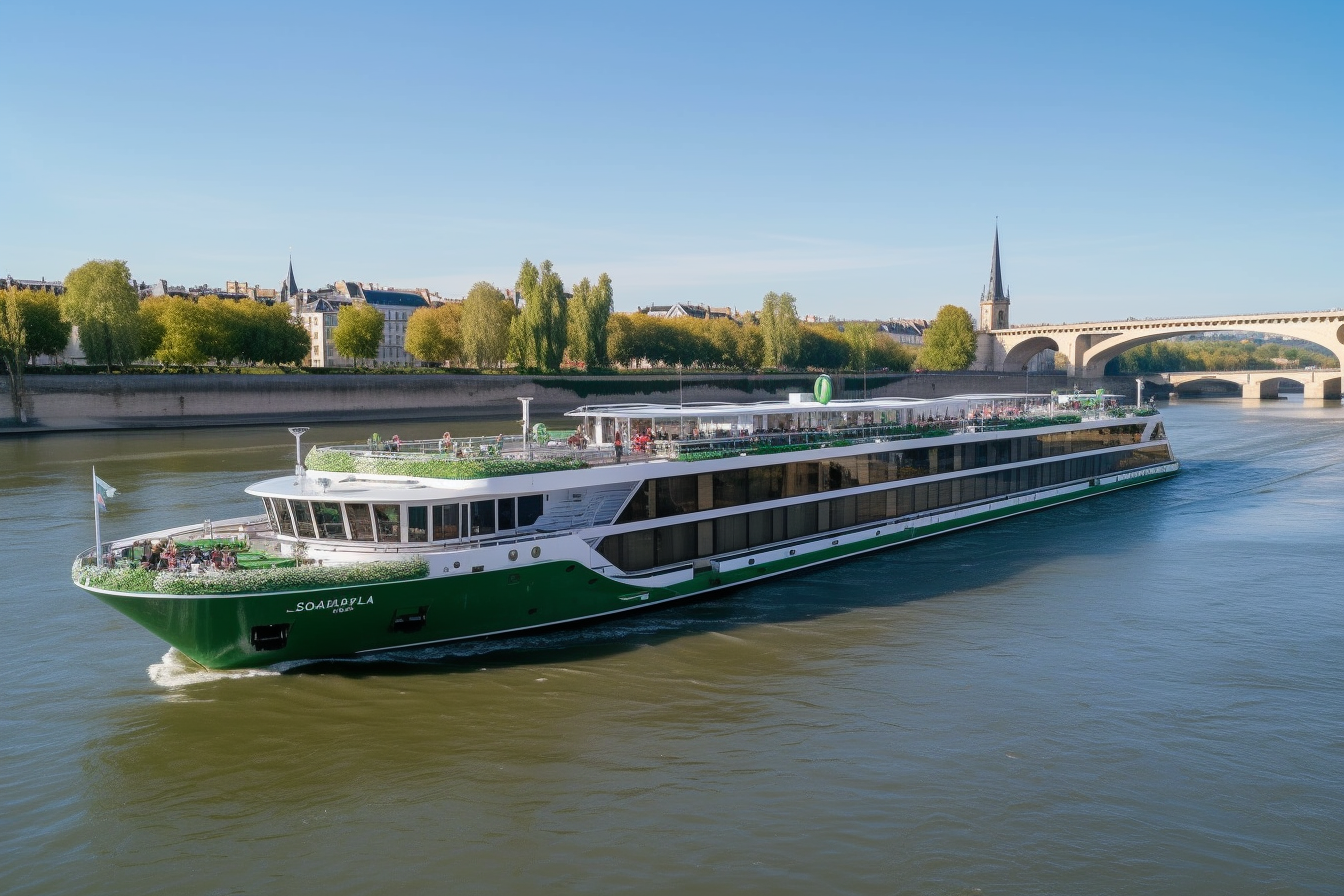Exploring the Charm of River Cruises: A Unique Travel Experience
River cruises offer a captivating way to explore the world's waterways, combining the comfort of a luxury hotel with the adventure of traversing scenic landscapes. Unlike ocean cruises, river cruises provide intimate experiences, allowing passengers to immerse themselves in local cultures and history while enjoying breathtaking views from the deck. This mode of travel has gained popularity in recent years, attracting those seeking a more relaxed and enriching vacation experience.

One of the most appealing aspects of river cruises is the ever-changing scenery. As the ship glides along the river, travelers are treated to panoramic views of picturesque landscapes, historic landmarks, and quaint villages. Many river cruise itineraries include guided tours and excursions at each port of call, ensuring that passengers can make the most of their time ashore.
What are popular river cruise destinations?
While Europe remains the most popular region for river cruises, with iconic waterways like the Danube, Rhine, and Seine, other destinations around the world are gaining traction. In the United States, the Mississippi River offers a journey through the heartland of America, showcasing charming towns, antebellum mansions, and rich cultural heritage. The Columbia River in the Pacific Northwest provides a different perspective, with stunning landscapes, wine country, and opportunities to learn about Lewis and Clark’s expedition.
Outside of Europe and North America, the Mekong River in Southeast Asia has become increasingly popular, offering glimpses into the vibrant cultures of Vietnam and Cambodia. The Nile River in Egypt continues to attract history enthusiasts, while the Amazon River provides an unparalleled opportunity to explore the world’s largest rainforest.
How does a river cruise ship differ from an ocean liner?
River cruise ships are distinctly different from their ocean-going counterparts. These vessels are much smaller, typically ranging from 100 to 200 feet in length, compared to massive ocean liners that can stretch over 1,000 feet. This smaller size allows river cruise ships to navigate narrow waterways and dock directly in the heart of cities and towns.
The onboard experience also differs significantly. River cruise ships usually feature more intimate dining areas, lounges, and public spaces. Staterooms are often designed with large windows or balconies to maximize views of the passing scenery. Entertainment tends to be low-key, focusing on educational lectures, local performances, and wine tastings rather than the large-scale productions found on ocean cruises.
Another key difference is the emphasis on destination immersion. River cruises spend more time in port, often docking overnight, allowing passengers to explore destinations in depth. This contrasts with ocean cruises, which may spend several days at sea between ports of call.
What should travelers expect on a Mississippi River cruise?
A Mississippi River cruise offers a journey through America’s heartland, showcasing the rich history and culture of the region. These voyages typically start in New Orleans or Memphis and travel northward, or begin in Minneapolis and head south. Along the way, passengers can explore antebellum mansions, Civil War battlefields, and vibrant music scenes in cities like Memphis and Nashville.
The Mississippi River itself is a major highlight, with its winding path and diverse ecosystems. Travelers can expect to see sprawling farmlands, dense forests, and charming river towns. Many itineraries include stops at historic sites such as Vicksburg National Military Park and the Mark Twain Boyhood Home and Museum in Hannibal, Missouri.
Onboard, passengers can enjoy regional cuisine, lectures on local history and culture, and entertainment that reflects the musical heritage of the Mississippi Delta. The pace is leisurely, allowing ample time to relax on deck and watch the scenic landscapes unfold.
What makes Columbia River cruises unique?
Columbia River cruises offer a distinct experience that combines natural beauty with pioneering history. These voyages typically navigate the Columbia and Snake Rivers, tracing the path of Lewis and Clark’s famous expedition. The landscape is dramatically different from the Mississippi, featuring rugged canyons, rolling vineyards, and the striking Columbia River Gorge.
Itineraries often include stops at wineries in Washington and Oregon, providing opportunities for tastings and tours. Cultural highlights may include visits to Native American sites and museums dedicated to the region’s history. Nature enthusiasts can enjoy hiking in scenic areas like Multnomah Falls or exploring the unique ecology of the Columbia River estuary.
Many Columbia River cruises also incorporate a focus on the Lewis and Clark expedition, with onboard historians and visits to significant sites along their route. This educational component adds depth to the travel experience, allowing passengers to gain a deeper appreciation for the region’s role in American history.
| River Cruise Provider | Destinations | Key Features |
|---|---|---|
| Viking River Cruises | Europe, Asia, Egypt | Cultural excursions, onboard lectures, complimentary Wi-Fi |
| AmaWaterways | Europe, Africa, Asia | Wine-themed cruises, wellness programs, bicycles for shore excursions |
| American Cruise Lines | Mississippi River, Columbia River | Spacious staterooms, regional cuisine, onboard historians |
| Avalon Waterways | Europe, South America, Asia | Panorama Suites, active discovery excursions, flexible dining options |
| Uniworld | Europe, Russia, Asia, Egypt | Luxury décor, all-inclusive pricing, exclusive excursions |
River cruises offer a unique way to explore the world’s waterways, combining comfort, culture, and scenic beauty. Whether navigating the historic Mississippi, the picturesque Columbia, or the grand rivers of Europe and beyond, these voyages provide an intimate and enriching travel experience. With a focus on destination immersion and a relaxed pace, river cruises continue to captivate travelers seeking a different perspective on the world.






